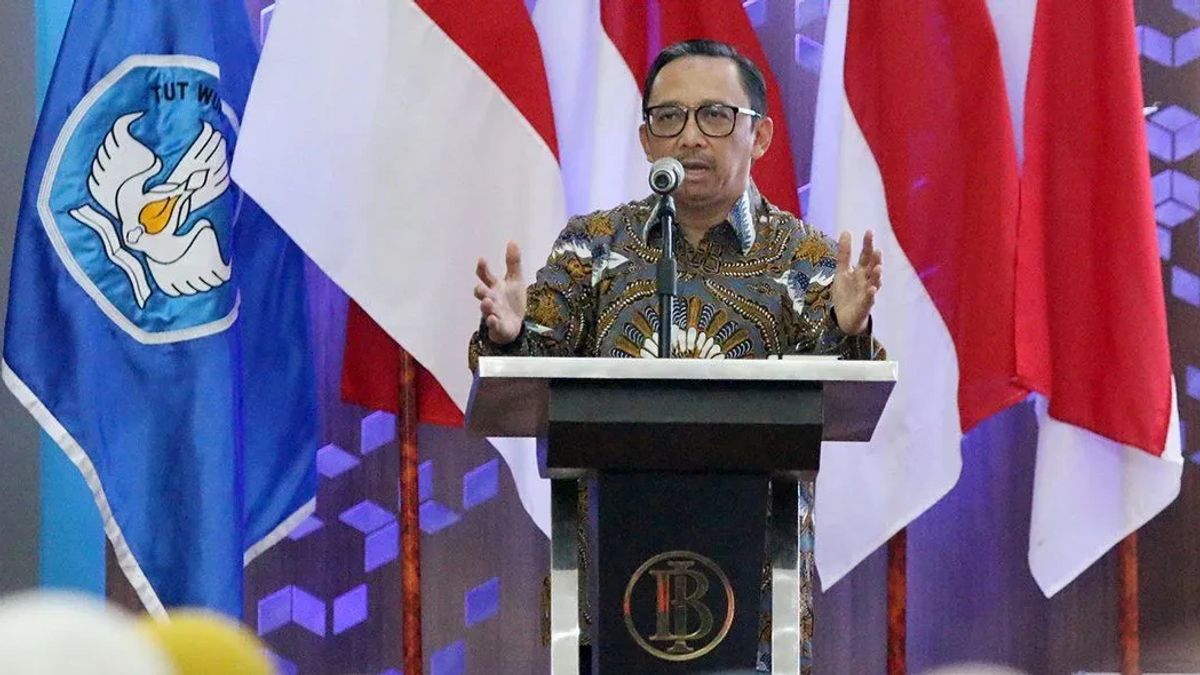JAKARTA - Bank Indonesia (BI) and the Financial Services Authority (OJK) launched an innovation study book for the digital financing business model for Micro, Small and Medium Enterprises (MSMEs).
This digital financing model study is expected to be a reference for stakeholders in implementing their financing.
This MSME Digital Financing Business Model Innovation Studybook is also a symbol of the start of the ACUBISA Movement.
ACUBISA is an integrated movement to increase MSME access which includes business meetings, providing a database for MSMEs to increase literacy through innovation studies to increase competitiveness.
BI Deputy Governor Juda Agung conveyed three things to strengthen opportunities for MSME financing.
First, innovation in MSME financing expands alternative financing business models that are in line with MSME needs and are in line with the risk appetite of Financial Institutions.
"Secondly, digitalization is not only from the marketing and payment side but from the perspective of recording finances and financing," he explained in his statement, Tuesday, June 25.
Third, to strengthen opportunities for MSME financing, namely the importance of access to information to reduce asymmetric information between Financial Institutions and MSMEs and market access.
Juda hopes that this study can expand alternative coverage to achieve the RPIM.
The study identified and confirmed the generic financing that financial institutions could use as an alternative.
"The main finding of this study is the importance of acquiring customer data in an innovative way to reduce asymmetric information between MSMEs and financial institutions," he said.
He conveyed that for its implementation, namely the use of conventional data and alternatives to determine the feasibility of debtors, as well as the importance of the role of stakeholders in the digital financing ecosystem.
Financial institutions can use big data analytics combined with machine learning to predict the repayment capacity of prospective debtors.
According to him, digital financing studies also contain analysis conducted by financial institutions, risk mitigation efforts, challenges faced and efforts to overcome them.
"Hopefully, this study can be a guide for the financial industry to expand alternative financing that is more inclusive. Alternatives to digital financing along with its implementation through studies can be downloaded at the following link," he said.
SEE ALSO:
Meanwhile, Deputy Commissioner of OJK, Friderica Widyasari Dewi views the bright prospects for financing MSMEs.
The portion of bank credit to MSMEs in April 2024 is currently still at 7.3 percent or below Rp1,400 trillion.
According to Friderica, there is an opportunity for the financing institution to achieve the Macroprudential Inclusive Financing Ratio (RPIM) of 30 percent. However, this potential meets the challenges of MSMEs, namely capital and human resources.
"Synergy between authorities will have a big impact on MSMEs to become the main pillar of the economy," concluded Friderica.
The English, Chinese, Japanese, Arabic, and French versions are automatically generated by the AI. So there may still be inaccuracies in translating, please always see Indonesian as our main language. (system supported by DigitalSiber.id)
















